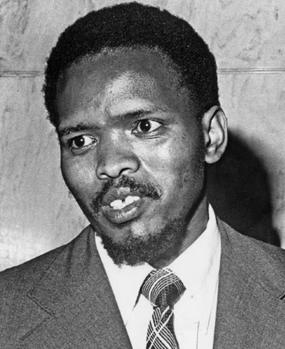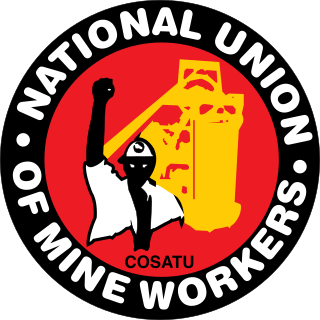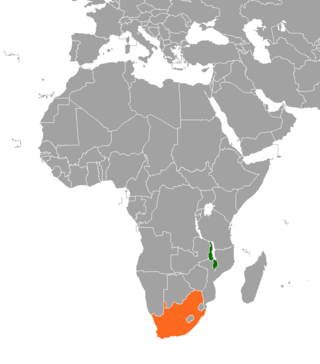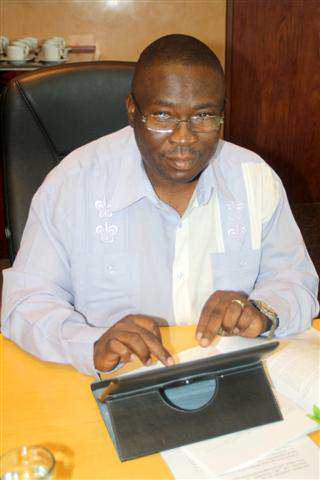Related Research Articles

Bantu Stephen Biko OMSG was a South African anti-apartheid activist. Ideologically an African nationalist and African socialist, he was at the forefront of a grassroots anti-apartheid campaign known as the Black Consciousness Movement during the late 1960s and 1970s. His ideas were articulated in a series of articles published under the pseudonym Frank Talk.

Helen Beatrice Joseph OMSG was a South African anti-apartheid activist. Born in Sussex, England, Helen graduated with a degree in English from the University of London in 1927 and then departed for India, where she taught for three years at Mahbubia School for girls in Hyderabad. In about 1930 she left India for England via South Africa. However, she settled in Durban, where she met and married a dentist, Billie Joseph, whom she later divorced.
Elias Mathope Motsoaledi OMSG was a South African anti-apartheid activist. He was Accused No.9 in the Rivonia Trial and was sentenced to life imprisonment in July 1963 with a group of anti-Apartheid revolutionaries which included Nelson Mandela who was Accused No.1.

DRUM is a South African online family magazine mainly aimed at black readers, containing market news, entertainment and feature articles. It has two sister magazines: Huisgenoot and YOU.

Israel's policies and actions in its ongoing occupation of the Palestinian territories have drawn accusations that it is committing the crime of apartheid. Leading Palestinian, Israeli and international human rights groups have said that the totality and severity of the human rights violations against the Palestinian population in the occupied territories, and by some in Israel proper, amount to the crime against humanity of apartheid. Israel and some of its Western allies have rejected the accusation, with the former often labeling the charge antisemitic.

The National Union of Mineworkers (NUM) is a mainly mining industry related trade union, an organisation of workers with common goals through organised labour, in South Africa. With a membership of 300,000 as of 2014, it is the largest affiliate of the Congress of South African Trade Unions (COSATU).

The National Council of Trade Unions (NACTU) is a national trade union center in South Africa.
Peter Sexford Magubane OMSS was a South African photographer and anti-apartheid activist. He was also the personal photographer of President Nelson Mandela.

Malawian-South African relations refers to the bilateral relationship between Malawi and South Africa. South Africa's first formal relationship with an independent African country was established with Malawi, beginning in 1967.

Ebrahim Patel is a South African politician and former trade unionist who has been Minister of Trade, Industry and Competition since May 2019. He previously served as Minister of Economic Development from 2009 to 2019.

Pius Nkonzo LangaSCOB was Chief Justice of South Africa from June 2005 to October 2009. Formerly a human rights lawyer, he was appointed as a puisne judge of the Constitutional Court of South Africa upon its inception in 1995. He was the Deputy Chief Justice of South Africa from November 2001 until May 2005, when President Thabo Mbeki elevated him to the Chief Justiceship. He was South Africa's first black African Chief Justice.
Racism in South Africa can be traced back to the earliest historical accounts of interactions between African, Asian, and European peoples along the coast of Southern Africa. It has existed throughout several centuries of the history of South Africa, dating back to the Dutch colonization of Southern Africa, which started in 1652. Before universal suffrage was achieved in 1994, White South Africans, especially Afrikaners during the period of Apartheid, enjoyed various legally or socially sanctioned privileges and rights that were denied to the indigenous African peoples. Examples of systematic racism over the course of South Africa's history include forced removals, racial inequality and segregation, uneven resource distribution, and disenfranchisement. Racial controversies and politics remain major phenomena in the country.

Impala Platinum Holdings Limited or Implats is a South African holding company that owns several companies which operate mines that produce platinum and platinum group metals, as well as nickel, copper and cobalt. Its most significant mine is the Impala mine in the North West province of South Africa. The company also owns or has interest in the Two Rivers mine and the Marula mine in the South Africa Bushveld Igneous Complex and the Mimosa mine and Zimplats in Zimbabwe, as well as the Impala Refining Services which smelts and refines metals for other companies. In December 2019, Impala Canada was formed, owned by the holding company, out of the acquisition of North American Palladium and its mine in Ontario, Canada.
John Mowbray Didcott was a South African judge who served in the Constitutional Court of South Africa from February 1995 until his death in October 1998. He joined the bench in 1975 as a judge of the Natal Provincial Division, where he was known for defending human rights during the apartheid era.

The Marikana massacre was the killing of thirty-four miners by the South African Police Service (SAPS) on 16 August 2012 during a six-week wildcat strike at the Lonmin platinum mine at Marikana near Rustenburg in South Africa's North West province. The massacre constituted the most lethal use of force by South African security forces against civilians since the Soweto uprising in 1976 and has been compared to the 1960 Sharpeville massacre.
On 15 November 2014 workers at South Africa's major platinum producers – Anglo American Platinum, Impala Platinum, and Lonmin – went on strike demanding that wages be immediately doubled. However, after five months of striking they settled for a more modest pay increase spread over three years. It was the longest and most expensive strike in South African history.

Senzeni Zokwana is a South African politician. He is a former Member of Parliament and served until May 2019 as the Minister of Agriculture, Forestry and Fisheries, having been appointed by President Jacob Zuma in May 2014. He previously served as the President of the National Union of Mineworkers (NUM).

Amos Fish Mahlalela is a South African politician from Mpumalanga. He has been the Deputy Minister of Tourism since May 2019 and has represented the African National Congress (ANC) in the National Assembly since May 2014. In June 2023, he was additionally elected as the Provincial Chairperson of the ANC Veterans' League in Mpumalanga.
"Dubul' ibhunu", translated as shoot the Boer or kill the Boer or kill the farmer, is a controversial anti-apartheid South African song. It is sung in Xhosa or Zulu. The song originates in the struggle against apartheid when it was first sung to protest the Afrikaner dominated apartheid government of South Africa.
Events in the year 2022 in South Africa.
References
- ↑ "News24".
- ↑ "Joseph Mathunjwa | Who's Who SA". whoswho.co.za. Archived from the original on 19 August 2013.
- 1 2 "Joseph Mathunjwa".
- ↑ "Q&A: Amcu's Joseph Mathunjwa – City Press". Archived from the original on 26 April 2014. Retrieved 9 May 2014.
- ↑ Dlamini, Palesa. "South Africa functioned better when whites were in charge - Mathunjwa". City Press. Retrieved 30 March 2024.
- ↑ "Yes, we're in a mess — but why the pointless apartheid comparison?". TimesLIVE. Retrieved 30 March 2024.